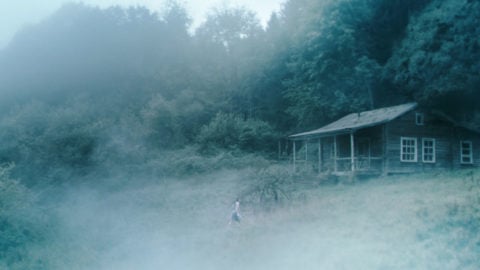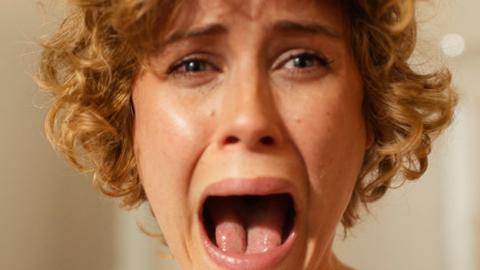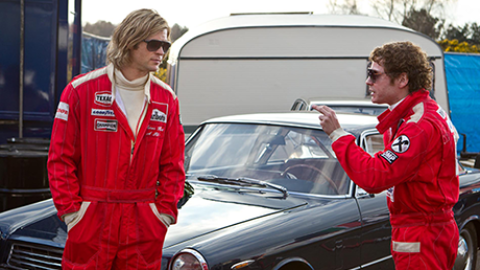Deep Focus: T2 Trainspotting
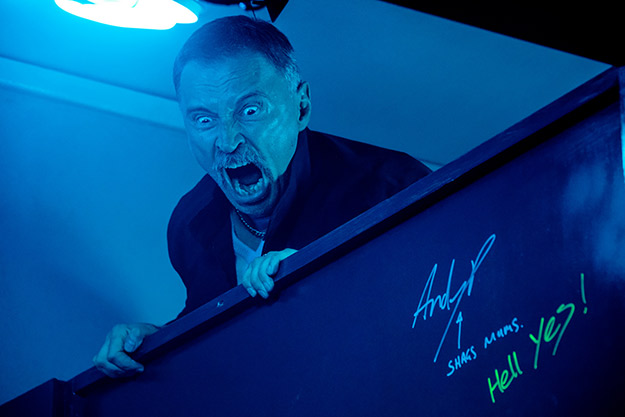
You didn’t have to be a Gen Xer to champion Trainspotting when it exploded into cinemas in 1996 with an anarchic black-comic bang. And you don’t have to be gloating over a wasted generation to embrace T2 Trainspotting, a confident, quirky comedy-drama that skillfully alternates bangs and whimpers. The same creative team that brought novelist Irvine Welsh’s motley crew of losers and junkies off the Edinburgh streets and onto the big screen 20 years ago has reassembled to drag them snorting and screaming, often on the brink of death, into the mind-clouding 21st century. It’s part hello-again, part goodbye-to-all-that.
They remain unpredictable masters, not of their fates, but of their own junkyard patois and sardonic lower-depths wisdom. “I’d been on the skag for 15 years and you know how it is . . . Daylight is not high on your agenda when you got a habit,” says seemingly doomed, lovable Spud (Ewen Bremner), explaining why he never recognized British Summer Time and was thus late by an hour to every job and opportunity. “Too busy to speak to the working classes,” complains the psychotic thief Frank Begbie (Robert Carlyle) of the Queen, who never responded to his letters from prison. “Of course, when she needs a soldier, it’s a different story.” But Begbie has never been in the army: “How could I? I’ve been in the fucking jail for 20 year.”
Director Danny Boyle and screenwriter John Hodge, with Welsh’s participation (he again acts a small but important role, and they freely draw on his print sequel, Porno), do something paradoxical and remarkable. Their characters’ existential fatigue becomes this second chapter’s creative lifeblood. The movie’s fascination comes from testing four scarred men’s abilities to heal and change. How much of their overgrown-adolescent rebelliousness has survived two decades of embattled manhood? How much of it was mere fad or affectation?
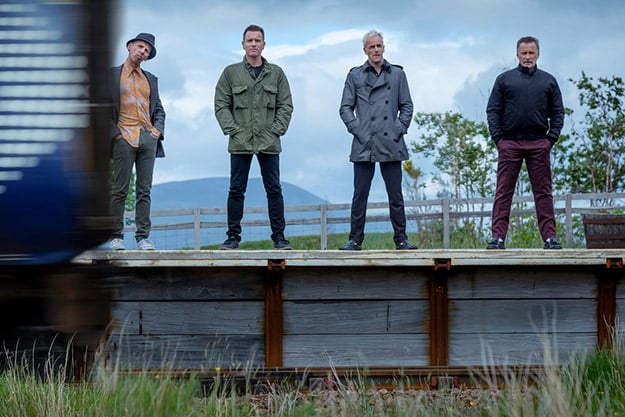
Boyle and Hodge must have recognized that the longer they waited to do a sequel, the more tension and anticipation they could build into the concept. Fans want to know how guys who looked wasted or desperate when they were twenty-something could survive into their forties. Are they still mentally and physically nimble enough to pull off street scams and sturdy enough to abuse drugs? Do they feel guilt about the dead bodies they left in their wake? Do they share enough fellow feeling to overcome a key betrayal in their ranks?
Those questions get embedded in farce and melodrama that test the bonds of three unstable fellows and one outright psycho. In the most original and enthralling sections, two characters, Mark Renton (Ewan McGregor) and his best frenemy Simon aka Sick Boy (Jonny Lee Miller), behave as if they’re aggressively passive-aggressive. They keep crucial pieces of themselves hidden from each other, yet each is smart enough to sense wrong or missing data. We’re never certain that Simon won’t act on his lust to avenge himself on Renton for one gigantic double-cross. We’re always aware that Renton’s tendency to overvalue his own cleverness could lead to disaster, whether he’s trying to persuade a Loyalist Protestant crowd that he’s one of them or to convince a government panel to give him and Simon a ton of money to develop a decrepit building in a forlorn stretch of Edinburgh. Knowing that most audiences will come into this movie already invested in its characters enables Boyle and Hodge to chart their evolution with disarming honesty. Everyone takes one step forward and two steps backward.
Renton, once the group’s most likely to succeed, sets the main action in motion when he returns to Edinburgh from middle-class exile in Amsterdam after he suffers a coronary on a health-club treadmill. In keeping with T2’s forward-looking yet retrospective spirit, with continual intercutting between past and present, the plot hinges on a crime from long ago: Renton’s decision to abscond with 12,000 pounds from the group heroin sale that climaxed Trainspotting. Four thousand should have gone to Begbie, whose addiction to violence rather than drugs is what made Renton realize that he needed to start a new life in the first place. Another four thousand were supposed to go to his best frenemy, the would-be slick hustler and semi-functioning coke addict Sick Boy/Simon, who has inherited his auntie’s rundown Port of Leith saloon, Port Sunshine, and runs a sex/extortion scam with a pretty Bulgarian lass. Renton did leave four thousand to the endearing, innocent Spud, but “Daniel” (as only his wife and his recovery group call him) was such an irredeemable junkie that the money went straight into his veins. Near T2’s start, Spud is about to complete suicide by plastic bag when Renton crashes through his bedsit door. As Spud sees it, “You ruined my life! And now you’ve ruined my death. Thanks, amigo.”
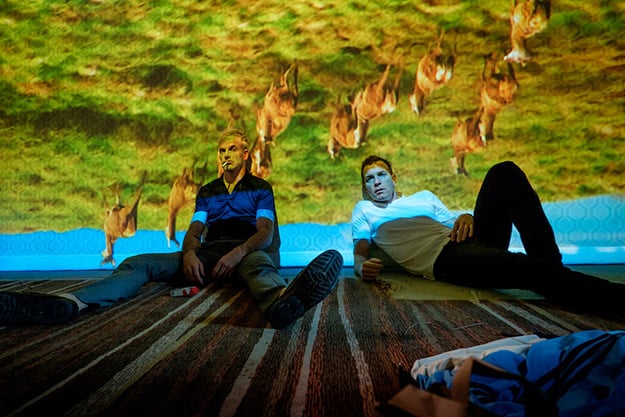
The threat to all their lives is really Begbie. Boyle and Hodge deftly contrast the serious farce of Spud’s near-death experience and the buddy-film-gone-wrong reunion of Renton and Simon with the looming menace of this violence freak; in characteristically bloody and sadomasochistic fashion, he engineers an unconventional escape from prison. Begbie at large is certain to imperil Renton and anyone else who befriends or protects him. Thievery and thuggery are all he knows. Not only does he lack regret—he can’t think of a reason why he should feel remorseful or apologize to anyone.
What does it all mean? The Trainspotting attitude makes a mockery of that very question. Its protagonists want to believe that masculine vitality requires no raison d’être. Renton magnetized the first film with his famous rant against the straight world’s admonishments to “Choose your future, choose life.” In Renton’s mind, that amounted to “indexed pension, tax exemption, clearing the gutters, getting by, looking ahead, to the day you die.” In Trainspotting 2, he explains to the Bulgarian, Veronika (Angela Nedyalkova) that “choose life” was “the well-meaning slogan from a 1980s anti-drugs campaign” that heroin addicts injected with irony. Actually, Renton was venting not simply against slogans like “Just Say No” but also against everything mediocre and commonplace in working-class and bourgeois life.
In T2, his dynamic revulsion lands on our ears full force. He still recalls Jimmy Porter, the class warrior in John Osborne’s Look Back in Anger, begging his mates, “Let’s pretend that we’re human beings, and that we’re actually alive.” Renton hits his stride when he says “choose an iPhone made in China by a woman who jumped out a window,” then tears into virtual reality and faded hopes: “Choose updating your profile, tell the world what you had for breakfast and hope that someone somewhere cares… Choose recording everything, remembering nothing… . Choose failing to learn from your own mistakes, choose watching history repeat itself.”
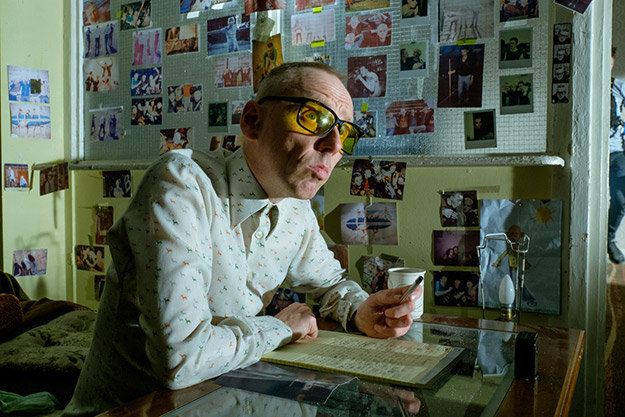
We begin to see Renton and Simon as existential swashbucklers capable, at their best, of improvising their way in and out of dangers high and low. In the movie’s first comic set piece, the two must create a Protestant fight song off the top of their heads when they get stuck in a Loyalist lodge. Renton comes up with the triumphant riff, “There were no more Catholics left,” then, as Simon joins in at the piano, turns it into a call-and-response crowd-pleaser. They plan to give Port Sunshine bar an extreme makeover, as a brothel (with Veronika as madam), and argue before a Scottish government development board that they’ll be re-making “an iconic Leith Building” into “an artisanal bed and breakfast experience.” By the end we see that these two aces of improv have little to call their own except their rare, combustible chemistry—but that might be something they could build their lives around.
In this movie’s boldest conceit, Spud becomes the budding memoirist destined to immortalize the misadventures of a gang that can shoot straight only when it’s shooting heroin. Bremner imbues this sad-eyed clown with a Chaplinesque sweetness, resilience, and ingenuity. He persuades us that Spud’s writing captures the Trainspotting experience so acutely that it moves even Begbie. And as Begbie Carlyle puts flesh on a diabolus ex machina. Begbie’s murderous aura lends the narrative its chief suspense while exposing the rifts in the buddies’ loyalties. Carlyle wrings value out of every potentially cheap thrill or laugh. His face shows that even a man who harbors malice toward all can be temporarily brought to his senses by a moment of truth.
Once again Boyle succeeds in turning these volatile, evasive characters inside out. He finds novel ways of beckoning us into the realities they share and the fantasies they don’t. He pinpoints narcotic altered states that catalyze the surreal and subvert the real. He puts us in an addict’s brain when Spud shoots up for what he thinks is one last time, then puts a bag over his head. We experience Spud’s vision of himself plummeting from the roof of his project building as Renton makes his way to the bedsit door. Then we’re with Renton as he barges in and tries to save him. In ultra-quick cuts Renton cushions dream-Spud’s fall and forces flesh-and-blood Spud to puke himself back into life.
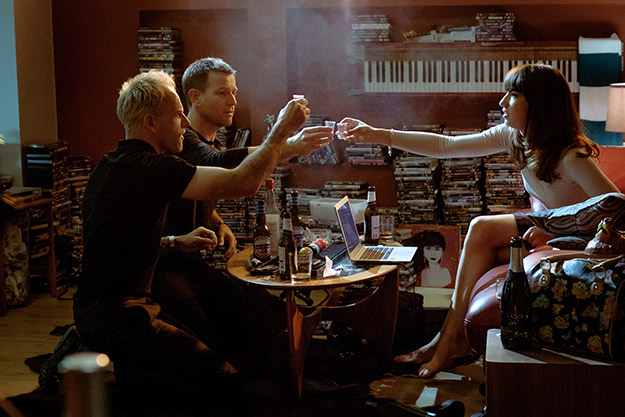
Throughout the movie, Boyle uses Anthony Dod Mantle’s virtuoso handheld camerawork and Jon Harris’s lickety-split editing to create a heightened, edgy actuality, teeming with details; then he’ll insert an ultra-specific point-of-view shot, like Veronika coming into focus for Renton after Simon beats him unconscious, reminding us that this is also a story about spiky, unpredictable individuals. Boyle and his team are equally deft in quieter moments. In a hilarious and doleful turning point of the first film, the one square member of the extended friendship group, an athletic type named Tommy (Kevin McKidd), took Renton, Spud, and Sick Boy for a hike through some picturesque moors. Tommy urged them to delight in “the great outdoors,” but they reacted like aliens, uncertain that the fresh air would support their biological systems. In T2: Trainspotting, Spud insists that Renton and Sick Boy/Simon return there to remember Tommy. The simple image of them standing in the exact same spot, by the train tracks, is enough to set emotion-charged associations buzzing in our brains. Then Simon, with malicious urgency, compels Renton to recall selling Tommy his first addictive hit of heroin, leading him to HIV infection and death at 22.
Spud’s artistic gifts may finally enable him to get along in life. Simon and Renton inch toward new alternatives but can’t deny the unruly impulses that fueled their youthful friendship. Boyle gets all this across with an electric accessibility. Because of his free-swinging camera, critics often view Boyle as a quintessentially cinematic director. I think he’s innately theatrical, in the best possible way. He opens up ideas and emotions for the audience. For me, his National Theater production of Frankenstein was a revelation: Dr. Frankenstein and his creation became, to borrow the words of literary critic Michael Dirda, “sexual rivals, spiritual brothers” who “finally realize how much they are halves of a single whole, each giving life to the other.” By the end of T2, that’s also how we come to see Renton and Simon.
Michael Sragow is a contributing editor to Film Comment and writes its Deep Focus column. He is a member of the National Society of Film Critics and the Los Angeles Film Critics Association. He also curates “The Moviegoer” at the Library of America website.



